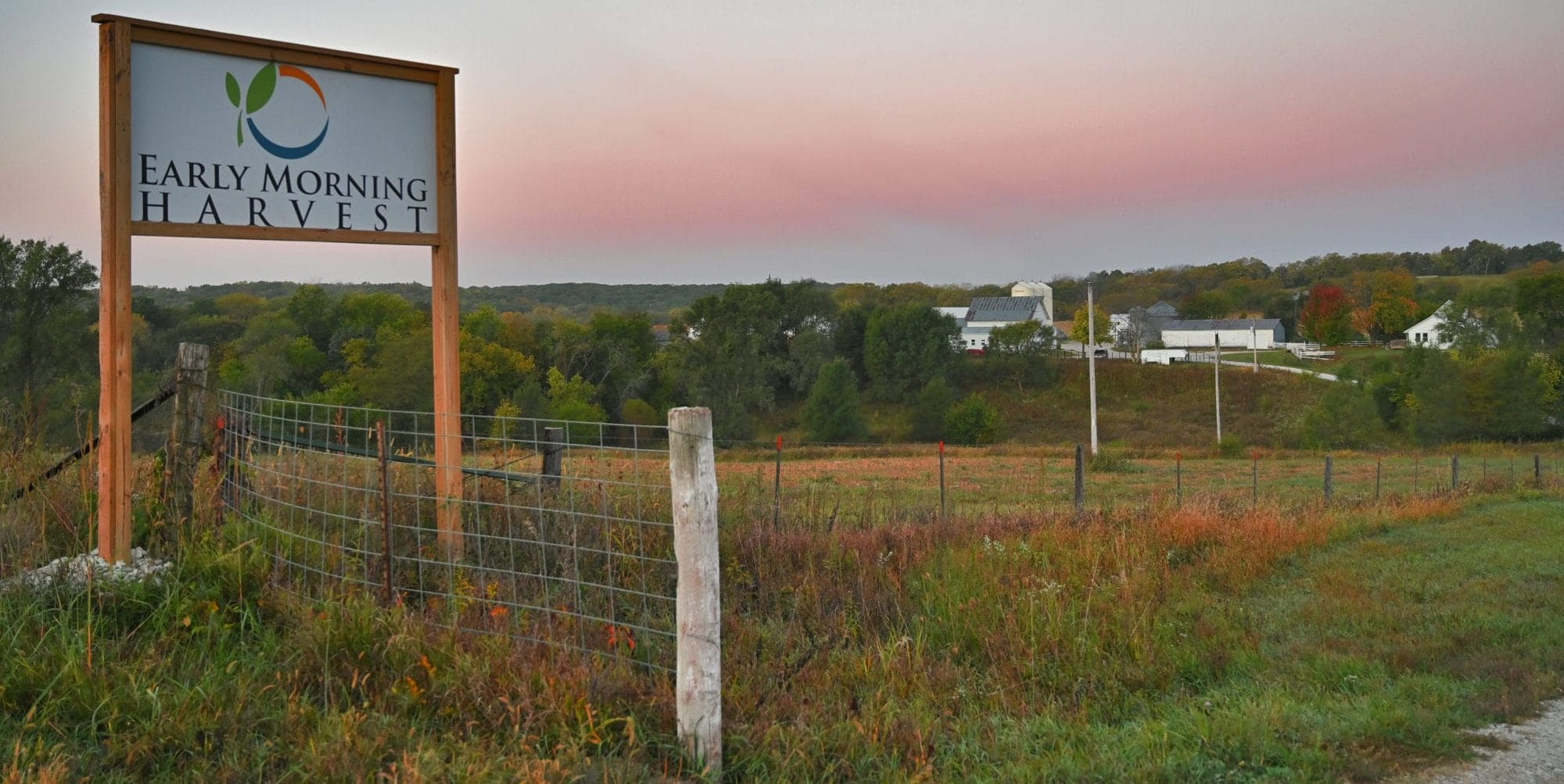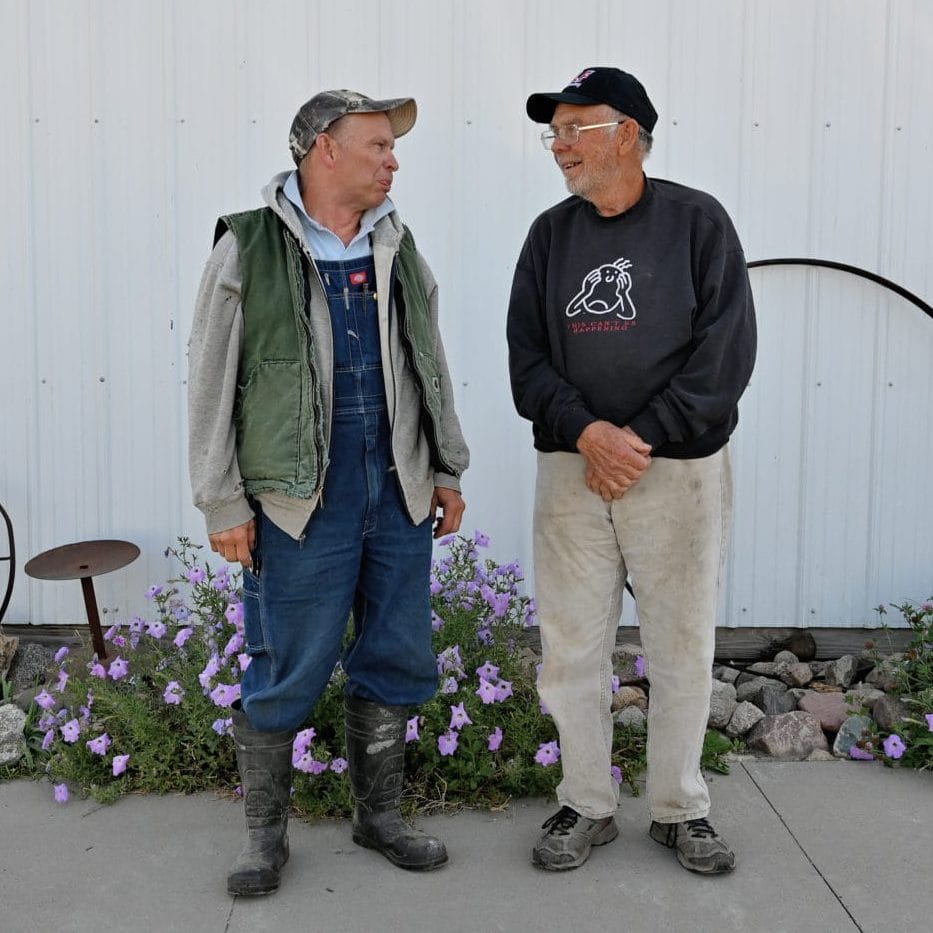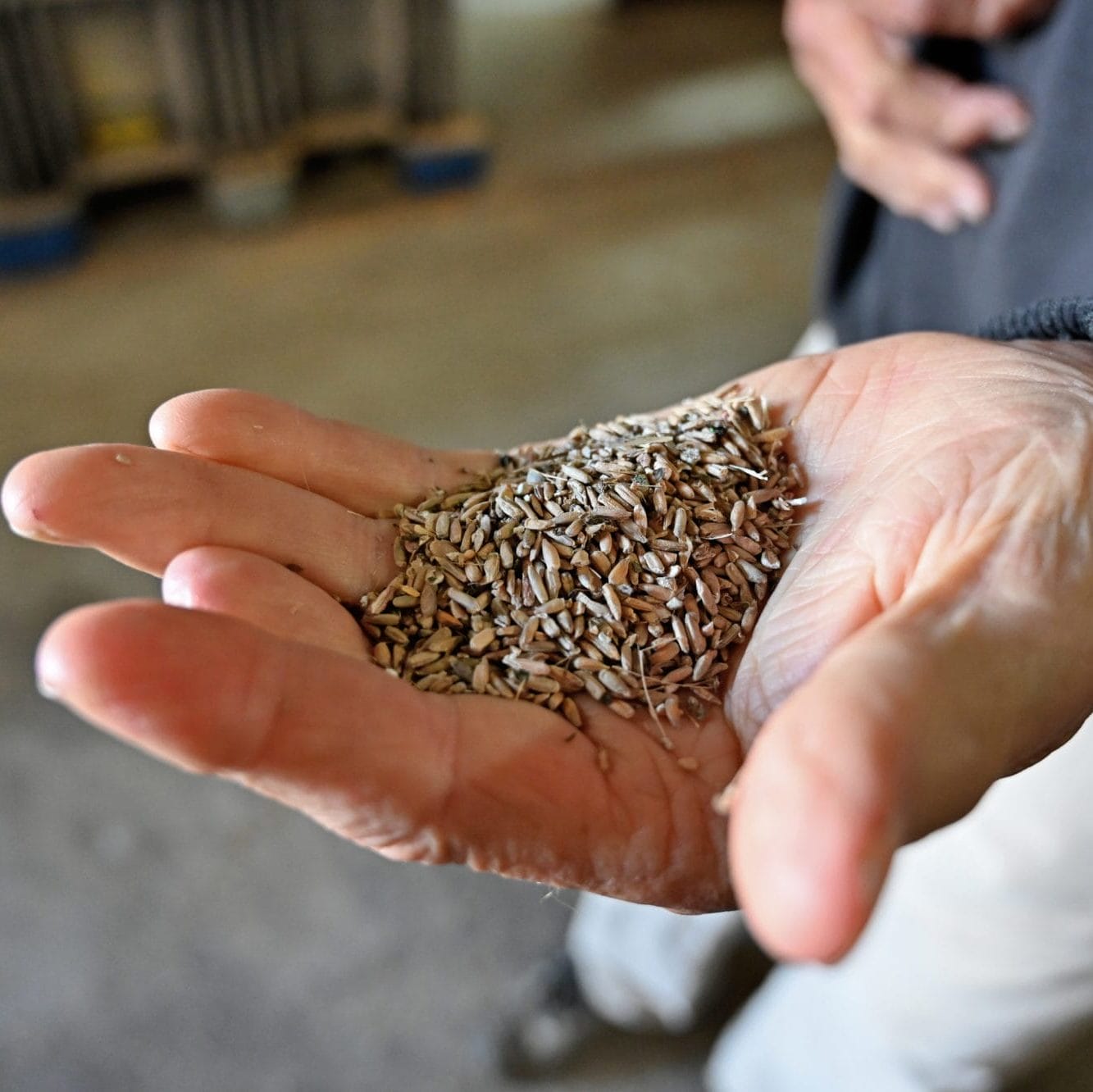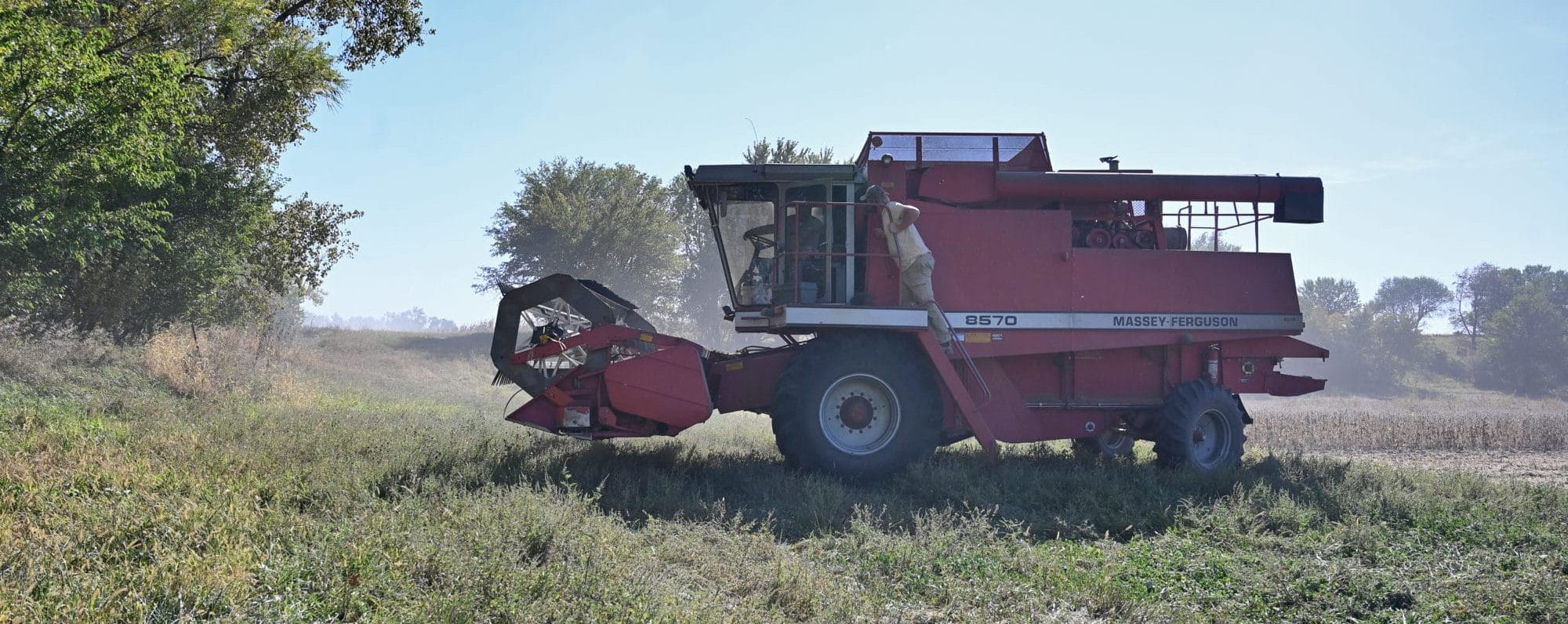Bridging the Gap
For two PFI farm families, thriving as multigenerational operations hinges on trust, respect and an openness to change.
A rosy pre-dawn glow faintly illuminates the large sign welcoming visitors to Early Morning Harvest, a bustling grain, honey, produce, aquaponics, livestock, egg and grain milling operation that typically begins its day hours before the sun is up. In the staff gathering room, cofounder and current owner, Jeff Hafner, saunters in to sit. It’s now 7:15 a.m., but for Jeff, it’s a mid-morning break.
“I made coffee at 3 a.m. today,” he says with a tinge of weariness. He mentions how one of the farm’s employees arrived at 3:30 a.m. and was on the road with deliveries an hour later. “All the Amazon and eBay orders are filled and taken to the post office already.”
Early Morning Harvest lives up to its name.
Also seated at the table is Jeff’s father, Earl Hafner, who cofounded the business and maintains an active role in the farm’s operations. Earl passed leadership duties to Jeff years ago, but father and son always worked well together. Across farm country, stories abound of power struggles or conflict when a younger generation returns to the farm. But Earl and Jeff have managed to avoid that fate.
“It’s been a 30-year process (of handing over responsibility),” Jeff says.
“We’ve had to get rid of our ‘I’m right’ thought process because times change and people change.”
His father adds, “It comes down to listening and respect for the other person.”
Embracing Change
The Hafners’ connection to this patch of land in the rolling hills near Panora, Iowa, began in 1948 when Earl’s family first moved to the farm and started running a small dairy operation. Earl grew up helping with farm labor but left to join the military followed by several years working various agricultural jobs.
By 1979, he was eager to farm again. His parents sold the farm and retired to a nearby town, but Earl was able to rent it back and start his own farm operation that same year with his wife, Ronda Hafner, who helped with bookkeeping in addition to her off-farm work.
Jeff’s story parallels his dad’s in many ways. He, too, grew up helping on the farm, joined the military, explored other interests and later returned.
Central Iowa Power Cooperative had bought the land in two separate purchases in 1979 and 1980 intending to build a coal-fired electrical plant, but the plans never advanced. Jeff joined his father in the operation in 1993 and bought back the farm five years later.
As Jeff and Earl share their story, they complete each other’s thoughts, and Earl chuckles. “We badger back and forth all the time,” he says.
The closeness of their bond is evident, as is their penchant for playfulness. It’s also clear how they’ve managed to thrive as a multigenerational team: through mutual respect, openness to new ideas and a willingness to innovate.
As a result, their respective imprints are clearly visible in the diverse enterprises on the farm.
The farm’s original enterprises, started by Earl, include row crops, cattle and pigs. In 1999, the Hafners started exploring organic practices, which quickly became a pillar of their farming philosophy. After starting with 5 acres of organic barley, they gradually transitioned their land and diversified, adding buckwheat, wheat and rye to their rotation of corn, soybeans, oats and barley.
One day in 2009, while Jeff was away on a 13-month military deployment, Earl received a Kashi cereal label in the mail from his son. The brand, a subsidiary of Kellogg, is known for using a variety of whole grains in its cereals. “Jeff wrote, ‘We grow these grains, let’s make our own cereal,’” Earl recalls. “So we bought our little 4-inch mill. We were just playing around. I gave away a lot of cereal. And that got a lot of people interested.”
Earl enjoyed experimenting with milling grains. Following Jeff’s return in 2010, the Hafners received a grant to install a stone mill. Early Morning Harvest, LLC was born – and with it, a new direction for the farm. The Hafners, including Jeff’s wife, Shannon Hafner, were now poised to mill their own grains in earnest. That same year, they added an aquaponic greenhouse, a big interest of Jeff’s. The new enterprises meant new sales opportunities.
In the years since Early Morning Harvest’s naissance, they have found markets at Iowa stores and restaurants and through online sales, which spiked during the COVID-19 pandemic.
In 2022, to boost efficiency and take advantage of new opportunities, Jeff and Shannon bought the distribution company That Iowa Girl. In just one year, Early Morning Harvest grew from a staff of five to a team of 19 – and the Hafners had to quickly figure out new personnel, marketing and distribution processes.
Today, Jeff and Earl’s roles look much different than they did just five years ago. Jeff now spends more of his time educating and leading their mix of seasonal, part-time and full-time staff.
“When we talk about managing, remember that you manage things and lead people,” Jeff says. “You never manage people.” He makes a point of learning each person’s strengths to fit everyone comfortably into the workplace puzzle.
This inclusive approach to building a cohesive team in many ways mirrors the attributes of respect, openness and trust that have enabled Jeff and Earl to mesh as a multigenerational farming family.
Saying No to Power Struggles
About 100 miles away, near Iowa Falls, Iowa, these attributes are also evident in how the Gilbert family has navigated farming together. John and Bev Gilbert operate Gibralter Farms with their son and daughter-in-law, John C. and Sarah Gilbert.
One of John’s brothers, Greg, and his wife, Barb (John C’s uncle and aunt), are also part of the farm team. Together, they raise a diversified mix of crops and forage, along with cows and pigs they market through Niman Ranch and directly to consumers.
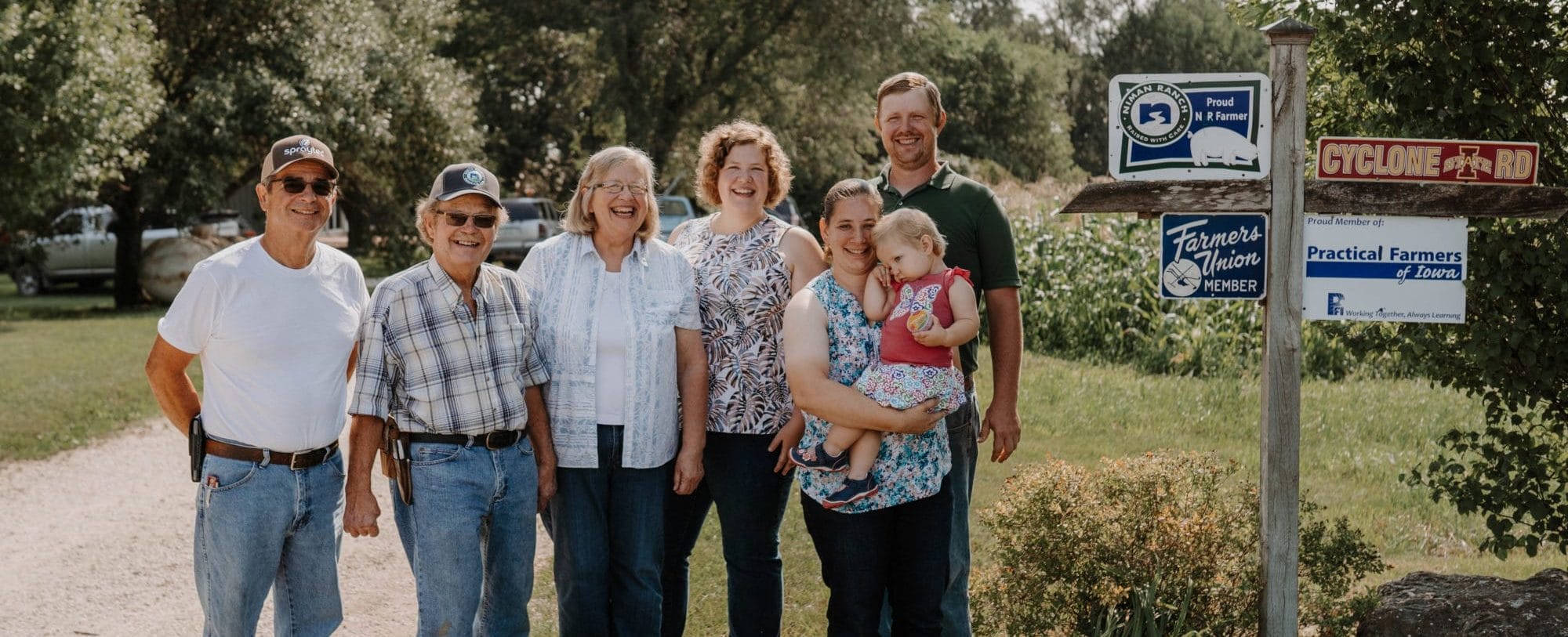
The Gilbert family in 2021. From left to right: Greg, John, Bev, Kate (John C.’s sister), Sarah and John C. (photo courtesy of Niman Ranch)
In 1899, the elder John’s great-grandparents bought the dairy farm where John grew up. But the name Gibralter Farms began in the early 1930s when John’s father started his own Brown Swiss dairy herd. He later expanded the farm, buying more acres from the 1950s to the 1980s.
John grew up helping on the farm. When he returned in 1979 with Bev, he worked alongside his parents to keep everything running. But the transition back was not without friction – and his father continued to be active on the farm even after John C. and Sarah joined the operation in 2010.
“People complain about either farming with their parents or farming with their kids. I would always say, ‘I guarantee you that the hardest is farming with both,’ ” John says, prompting hearty laughs around the room.
The dairy operation continues today with John C. and Sarah, though they have greatly downsized the milking herd to about six cows. They also now feed the milk to young dairy steers transitioning to a forage-based diet in their 70-head cattle operation.
Their transition to the farm has been smoother – a deliberate choice by John and Bev, who wanted to avoid the challenges they experienced farming with John’s parents. “They’ve bent over backwards to make it not (challenging) like that for us,” Sarah says.
For John and Bev, a smooth transition also ensures the land will be cared for. On Gibralter Farms, conservation practices are integral to how they farm, and the Gilberts have done work to add and restore habitat. “It’s important to not only make things better,” John says, “but also to ensure that there is somebody in some way who can carry on what you’re doing.”
Working Together
For both the Gilberts and the Hafners, good communication is central to successfully bridging any generational gaps. In the Gilbert household, Bev says important conversations were often had during Sunday dinners, a weekly family ritual for years. She adds that communication doesn’t always have to be direct to be effective.
“My husband’s mother would call me every day and invariably would tell me all the things that John’s dad had told her,” Bev explains. “Then John would come home for lunch and I would transfer everything that came over indirectly to him. Now, when Sarah and I talk about things and then have to transfer the info to our husbands, it kind of reminds me of the old way.”
“Put it this way,” John interjects, “we have a system!”
Respect and trust are also key ingredients to success – as well as a willingness by the older generation to step back and cede some control. From her vantage at Gibralter Farms, Sarah notices and appreciates John and Bev’s openness to change.
“Coming back to a place where people are already willing to do things differently allows for a lot more opportunity than if you’re trying to slot yourself into somewhere really rigid. That really struck me when we came back here to the farm.”
At Early Morning Harvest, Earl is content to take a backseat view of farm operations. “I can give suggestions, but I don’t want to make decisions that affect the profitability of the farm,” he says. “Anymore, I don’t know all the details of the operation. Now I’m just educated labor.”
Jeff acknowledges this shift. “For both of us, our goal now is to prepare the next generation. With every person that passes through here, the businesses take on a different color. Our decision now is – will the businesses continue, and if they do, what will they look like?”

